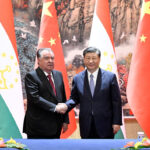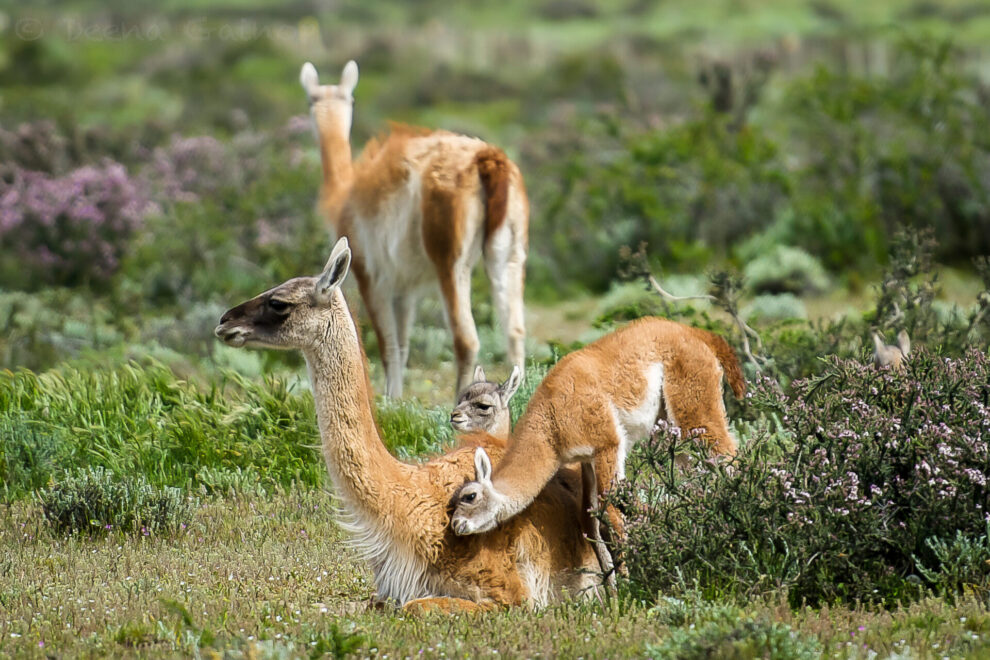A move to reintroduce guanacos—a wild relative of the llama—to a reserve in Argentina has become the latest flash point in a fierce scientific debate over the nation’s rewilding efforts that has included charges of government malfeasance and legal threats.
Supporters of the effort to move 45 guanacos some 1500 kilometers north from Patagonia to a reserve in central Argentina say it could help restore the iconic, long-necked ungulate—which has seen its overall population in South America drop by 97%—to landscapes where it once thrived. But critics argue Argentina’s environment ministry approved the plan without adequately evaluating its conservation value and risks, or consulting with scientists.
“This management decision violates guiding principles for rewilding,” six Argentine researchers wrote last month in Conservation Science and Practice (CSP). “There is a lack of proper evaluation and scientific evidence to support the need, opportunity, and feasibility of this translocation.” (The environment ministry did not respond to a request for comment.)
Earlier this year, some of the same authors were threatened with legal action after they joined dozens of other scientists in publishing a paper that critiqued Argentina’s rewilding policies and a book by a staffer from ReWilding Argentina, a prominent nonprofit that has supported numerous reintroduction efforts. ReWilding Argentina’s leaders complained the April critique was “written in a violent manner” and threatened to sue the authors for defamation. A guilty verdict in such a case could bar the critique’s authors from working for government agencies and public universities.
This month, in a letter published in Biological Conservation, the scientists fired back, accusing ReWilding Argentina of trying to stifle “constructive debate. … We strongly reject this baseless threat.”
ReWilding Argentina did not respond to questions about whether it plans to follow through with its legal threat. But the exchange highlighted the simmering controversy surrounding rewilding efforts in Argentina, where conservationists have moved to reintroduce jaguars, giant river otters, and other animals to former habitats. The debate intensified in September 2022 after the government approved a plan by the province of La Pampa to import 45 guanacos to its Luro reserve, which already hosts a few dozen translocated guanacos. ReWilding Argentina is providing logistical support to the effort, which some conservationists hope will open the door to translocating guanacos even farther north, to Argentina’s Impenetrable National Park.
Many researchers are skeptical of the need. They note researchers estimate that more than 1 million guanacos live in Argentina, so establishing new populations “is not a conservation priority,” says Ulises Balza, a biologist with Argentina’s National Scientific and Technical Research Council and lead author of the CSP letter. And they question whether translocated guanacos, which are adapted to Patagonia’s harsh environment, will thrive in their new homes, which have different ecosystems. They also fear animals imported from different populations could interbreed and reduce their genetic fitness. “The long-term viability of the population becomes uncertain,” says Benito González, chair of the South American Camelid Specialist Group of the International Union for Conservation of Nature.
Critics also say the environment ministry hasn’t required adequate studies before approving translocations. They note that Argentina’s National Parks Administration (NPA) gave sharp scrutiny to a proposal from ReWilding Argentina to move guanacos to the Impenetrable National Park. NPA concluded more research was needed before it could advance the plan. Among the unanswered questions were whether guanacos had actually once lived in the park, and how climate change might affect the long-term viability of a new population.
In the meantime, the authors of the Biological Conservation letter say the flare-up has had a “silver lining” by drawing public attention to a discussion “that was previously silenced or unfolding in the shadows: the when, where, how, and why of implementing rewilding strategies.”
Source: Science
















